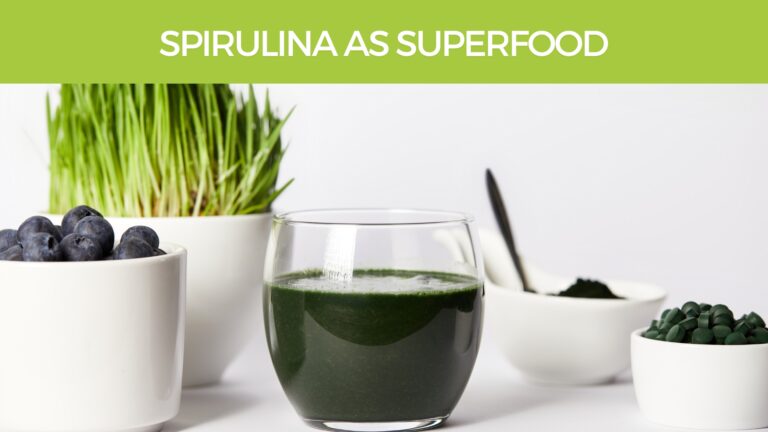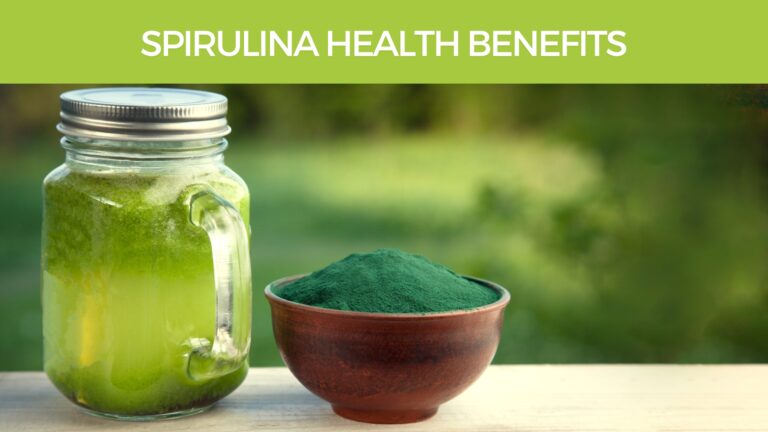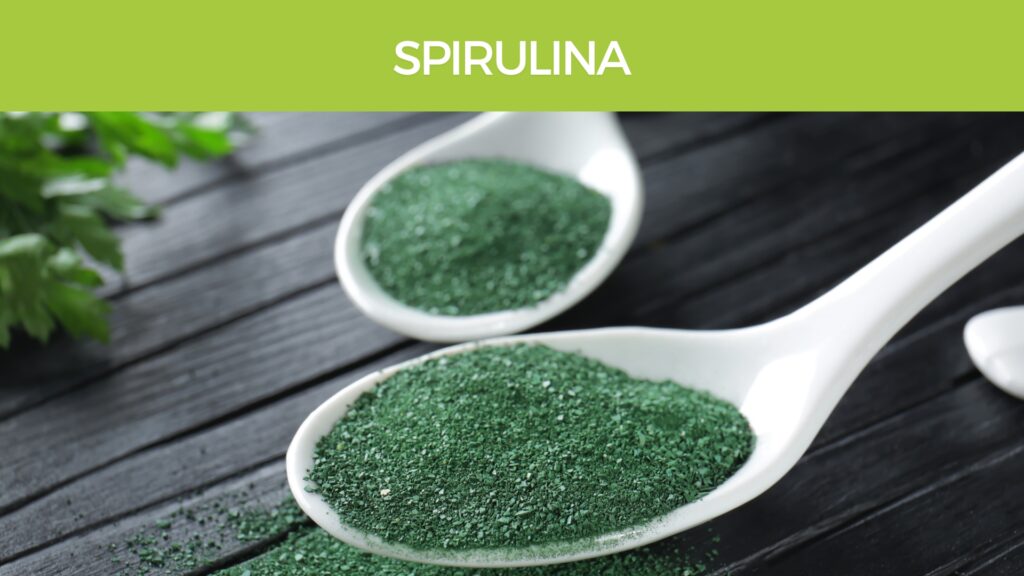- 2 years ago
- 4Minutes
- 639Words
- 801Views
Spirulina is a blue-green algae that became famous after it was successfully used by NASA as a dietary supplement for astronauts on space missions. An amazing superfood that is still hugely underestimated for its nutritional value, Spirulina deserves its place as the ultimate plant-based protein source and more.
(1) Spirulina in Clinical Practice: Evidence-Based Human Applications. PUBMED https://www.ncbi.nlm.nih.gov/pmc/articles/PMC3136577/
(2) Effects of spirulina on weight loss and blood lipids: a review. PUBMED https://www.ncbi.nlm.nih.gov/pmc/articles/PMC7061888/
(3) The effects of spirulina supplementation on serum iron and ferritin, anemia parameters, and fecal occult blood in adults with ulcerative colitis: A randomized, double-blinded, placebo-controlled trial. PUBMED https://pubmed.ncbi.nlm.nih.gov/37739734/
Numerous scientific studies have delved into the remarkable potential of Spirulina in fighting various diseases. Some of the most rigorous research, including randomized controlled trials and systematic reviews, indicates that this algae can do more than just alleviate symptoms—it may possess powerful properties that combat cancer, viruses, and allergies. It’s a promising natural remedy with a wide range of potential health benefits. (1)
Today we look at the nutritional effect and touch on just a a few of the health benefits of consuming Spirulina.

Nutritional Benefits of Spirulina
This amazing algae has long been a crucial part of human diets, serving as a valuable protein and vitamin source with no noteworthy side effects. In addition to its high protein content, which can reach up to 70%, it’s rich in essential vitamins, particularly B12 and provitamin A (β-carotenes), as well as important minerals, such as iron. It’s a natural nutritional powerhouse with much to offer.
Spirulina is often hailed as the “food of the future,” boasting exceptional components that fuel high energy levels. Among these components, some, like polysaccharides (Rhamnose and Glycogen) and essential fats (GLA), are readily absorbed by our cells, aiding in the release of energy.
Spirulina is composed of numerous antioxidants, including beta-carotene, phycocyanin, tocopherols, micronutrients, polyunsaturated fatty acids, particularly gamma-linolenic acid, and phenolic compounds. The high nutritive values of spirulina were recognised by the Intergovernmental Institution for the use of Microalgae Spirulina Against Malnutrition in the 1970s, where they launched Spirulina to fight against starvation and malnutrition. ( 2)
Spirulina’s beneficial impact on healthy lactobacillus in the gut leads to the production of Vitamin B6, further supporting the release of energy, making it a potential superfood for vitality.
Spirulina For Iron
In a study, after eight weeks of Spirulina supplementation, the results showed a significant increase in serum iron levels compared to the placebo group. The Spirulina group also had significantly higher mean corpuscular volume, while the placebo group saw lower red blood cell count and hematocrit levels. These findings suggest that Spirulina supplementation could be valuable in managing anemia. (3)

Healing Effects Of Spirulina
Cholesterol
In one clinical study, 15 diabetic patients who took Spirulina experienced a notable drop in their LDL : HDL ratio. Another study discovered a significant decrease in blood cholesterol, triglycerides, and LDL cholesterol, along with an increase in HDL cholesterol. This suggests that Spirulina could be a beneficial addition for managing cholesterol and promoting heart health.
Weight Loss
In a study involving 50 obese individuals with hypertension who were already undergoing antihypertensive treatment, half were given 2 grams of Spirulina daily for three months, while the other half received a placebo. The Spirulina group saw significant improvements in body mass, reducing from 92.96 kg to 88.97 kg, BMI dropping from 33.5 kg/m² to 31.7 kg/m², and a decrease in waist circumference. These findings highlight the potential of Spirulina in aiding weight management and improving health outcomes. (2)
The advantages of incorporating Spirulina into your diet go beyond what we’ve mentioned earlier. This remarkable algae offers a wide array of benefits, including antiviral, anticancer, antioxidant, antidiabetic, anti-inflammatory, liver protection, heart protection, and immune system enhancement properties. It’s a true health all-rounder. (2)





